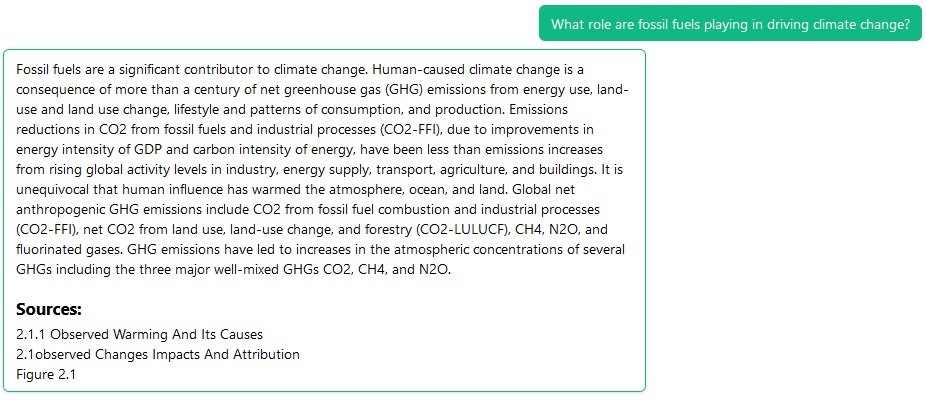PRINT AS PDF
With a shrinking climate change denial movement waging a ferocious disinformation campaign to deceive the public and policymakers about ongoing climate change and the dominant human role, AI has been brought to the arena to combat the disinformation. GPT 3.5 has been deployed to address questions based on the Intergovernmental Panel on Climate Change’s (IPCC) Sixth Assessment Report.
The new tool, Chat IPCC, contains major text from the Sixth Assessment report on a simple user interface. It allows viewers to ask questions.
The AI then addresses the questions while providing references to the sources from which its answer is derived. On the right half of the screen, the actual report with the relevant sections is made available.
At present, there remains a large policy gap between what is needed to hold warming to 1.5°C above pre-industrial temperatures and what is actually being done. In addition, muddled and contradictory policies—tax credits to promote renewable energy coupled with permission for increased oil and gas drilling—hobble the effort that is currently underway. As a result, global temperatures continue to rise and extreme weather continues to manifest itself in a non-linear fashion.
In stark contrast, the world learned during the 1970s that ubiquitous CFCs were destroying the Earth’s ozone layer. By the mid-1980s, global leaders had embarked on an effort to address the threat. The 1987 Montreal Protocol phased out the production and consumption of CFCs.
Even as the growing threat of climate change has been known since the late 1980s and the evidence of the human role today is “unequivocal,” no such foresight and political courage has been demonstrated. There is no agreement to phase out fossil fuels. Even the dirtiest fossil fuel, coal, is not set to be phased out. Instead, the “Net Zero by 2050” goal is just a goal. It is non-binding. There are no enforcement mechanisms.
Chat IPCC’s arrival will make reliable climate change-related information even more accessible. Perhaps AI coupled with the efforts of today’s young climate activists will begin to tilt the policy framework toward credible and robust action.




